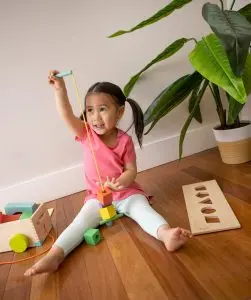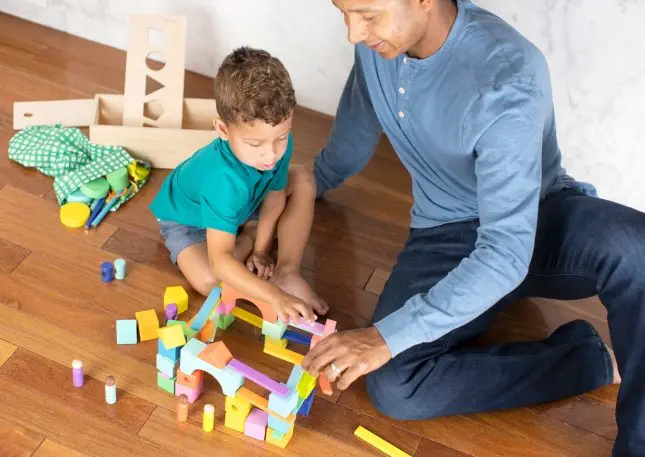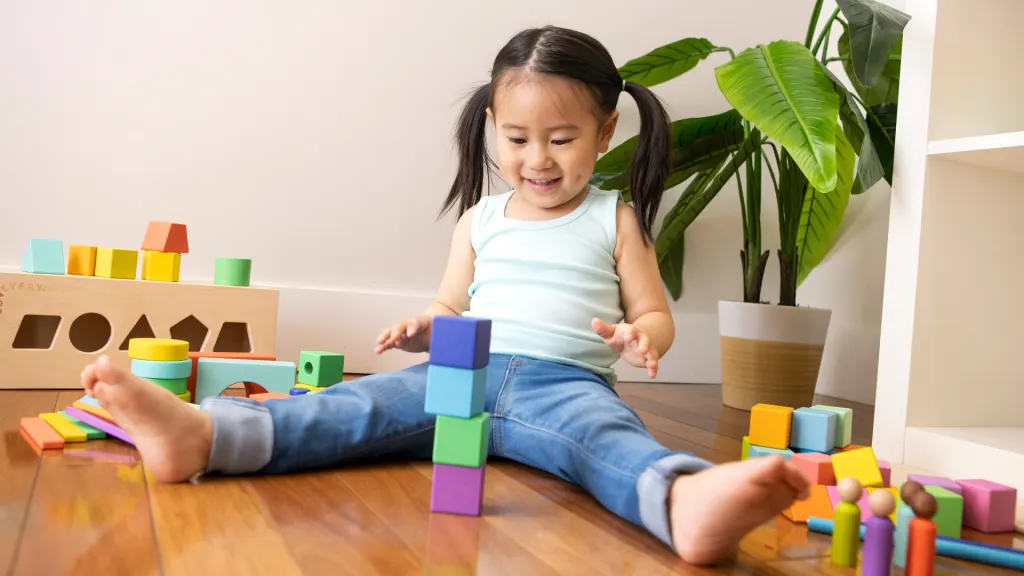The $28 billion toy industry is buzzing with high-tech battery-operated gadgets for kids. And yet, Silicon Valley investors, including Google Ventures and the Chan Zuckerberg Initiative (founded by Mark Zuckerberg and Priscilla Chan), have just invested in a startup called Lovevery that makes low-tech, old-school toys. The company just landed $20 million in this Series B round, led by lead investor Maveron, bringing its total investment to $32 million, setting it up to become an important player in the world of toys.

Importantly, each kit comes with a booklet for parents to help them understand their child developmental stage. Lovevery has grown by a factor of 10 since it launched. “We spend a lot of time designing the toys to keep children engaged and learning,” Rolph says. “We also test them in families’ homes. Our goal is to become a go-to resource for parents as they go through each stage with their child.”
Today, Lovevery launches its first toy for preschool-age children: a set of wooden blocks. On the surface, the blocks seem deceptively simple, but they’re far from it. They contain a lot of carefully selected pieces that will allow kids to play with them for years. Very young children will develop motor skills from building towers, but older children will be able to do more complex tasks, like create fully moving vehicles and even using the pieces to create faces that express emotion.
This particular block set was tested with 100 different families to ensure kids of many ages would stay engaged. (My daughter, who is nearly 4, tested the block set and played with it for hours, thanks to the way the blocks are carefully designed to offer many different kinds of play.)

“Bricks and magnetic tiles have widely replaced good, old-fashioned blocks,” Rolph says. “Those toys don’t teach kinds about physics and balance the way classic blocks do.”
Over the past few years, we’ve seen many tech executives who have shied away from giving their children too much technology and limiting screen time. A brand like Lovevery will appeal to parents who are eager to cater to their children’s developmental needs without resorting to the latest technology, but instead, offer them low-tech toys that are carefully designed with the help of experts.
With this infusion of funding, Lovevery will begin designing toys for older children and provide even more resources to parents looking to support their children’s development.
Recognize your brand’s excellence by applying to this year’s Brands That Matter Awards before the early-rate deadline, May 3.




